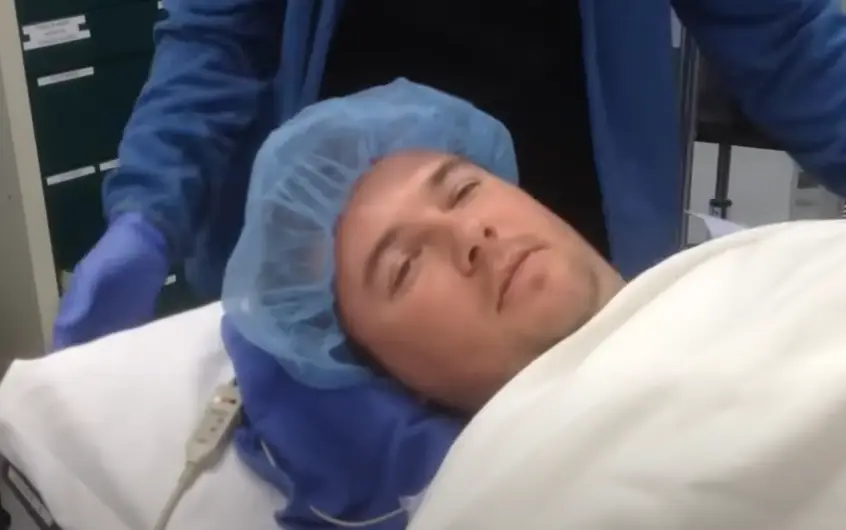
If you wanted to know how long it takes for anesthesia to kick in and send you to sleepy town, this video has the answer.
We all know that anesthesia is used to put patients under just before a surgery takes places, as nobody wants to be awake for that.
However, not a lot of people realize just how long it takes for it to kick in.
Anesthesia, as per the Cleveland Clinic 'refers to the use of medications (called anesthetics) to keep you from feeling pain during procedures or surgery.'
Advert
It adds: "Local and regional anesthesia numbs a specific area of your body. General anesthesia makes you temporarily unconscious (fall asleep) so you can have more invasive surgeries."
Who wouldn’t want that?

If you’ve undergone a surgery at some point in your life, you’ll remember being asked to count down from a number and then, suddenly you’re awake and in the post-operative room with no recollection of ever having closed your eyes.
It’s amazing stuff.
But how long do you think it takes to switch your brain off?
Apparently, not long at all.
A video uploaded to YouTube showed a man named Nick attempting to last as long as possible once the drugs were administered.
You might think he was able to stay awake for minutes, but you’d be very wrong.
You see, anesthesia is incredibly smart in how it operates, and it should, on average, take seconds to come into effect.
So, when Nick was lying on the operation table with his gown and cap on and attempted to count down from 20, he failed miserably.
In the clip, you can see poor Nick struggling as he counted 20, 19, 18,17…16…15…14…

That’s when he was seemingly frozen with his eyes half-open and his tongue poised to say another number.
Nick only lasted six seconds, and for those in the operating room, it was a record for someone to last that long.
People in the comments were rightfully baffled, with one writing: “This thing actually feels like fast travel and time skipping lmao.”
Another said: “Anesthesia is so weird... unlike normal sleep, you have no concept of time passing. You literally blink and the surgery is done.”
Someone else wrote: “I was in a surgery and I said to the nurse it's not working and she told me that the surgery was already over.”
So, how does it all work?
Well, according to board-certified anesthesiologist Dr Anthony Kaveh, MD., it’s pretty scary.
When asked by a fan if a rumor about the drug is true, he confirmed the scary theory.
The question was: "Is it true that you don't sleep during anesthesia but the anesthesia paralzes you and then wipes your memory of all the pain?"
He explained that anesthesia as a 'medication that turns off your brain making you completely unconscious so you can't perceive pain'.
Then, 'some medications' which 'paralyze your body if needed' are given to you before another dose of something mysterious is administered 'to wipe your memory so that you're less anxious' and to 'minimize the risk of PTSD under anesthesia'.
The Cleveland Clinic explains that the 'sedation' of anesthesia 'relaxes you to the point where you’ll nap but can wake up if needed to communicate'.
While regional anesthesia 'blocks pain in a larger part of your body, like a limb or everything below your chest' and 'general anesthesia' 'makes you unconscious and insensitive to pain or other stimuli' and is normally used for 'more invasive procedures or surgeries of your head, chest or abdomen'.
Mmmm, that’s pretty scary.
